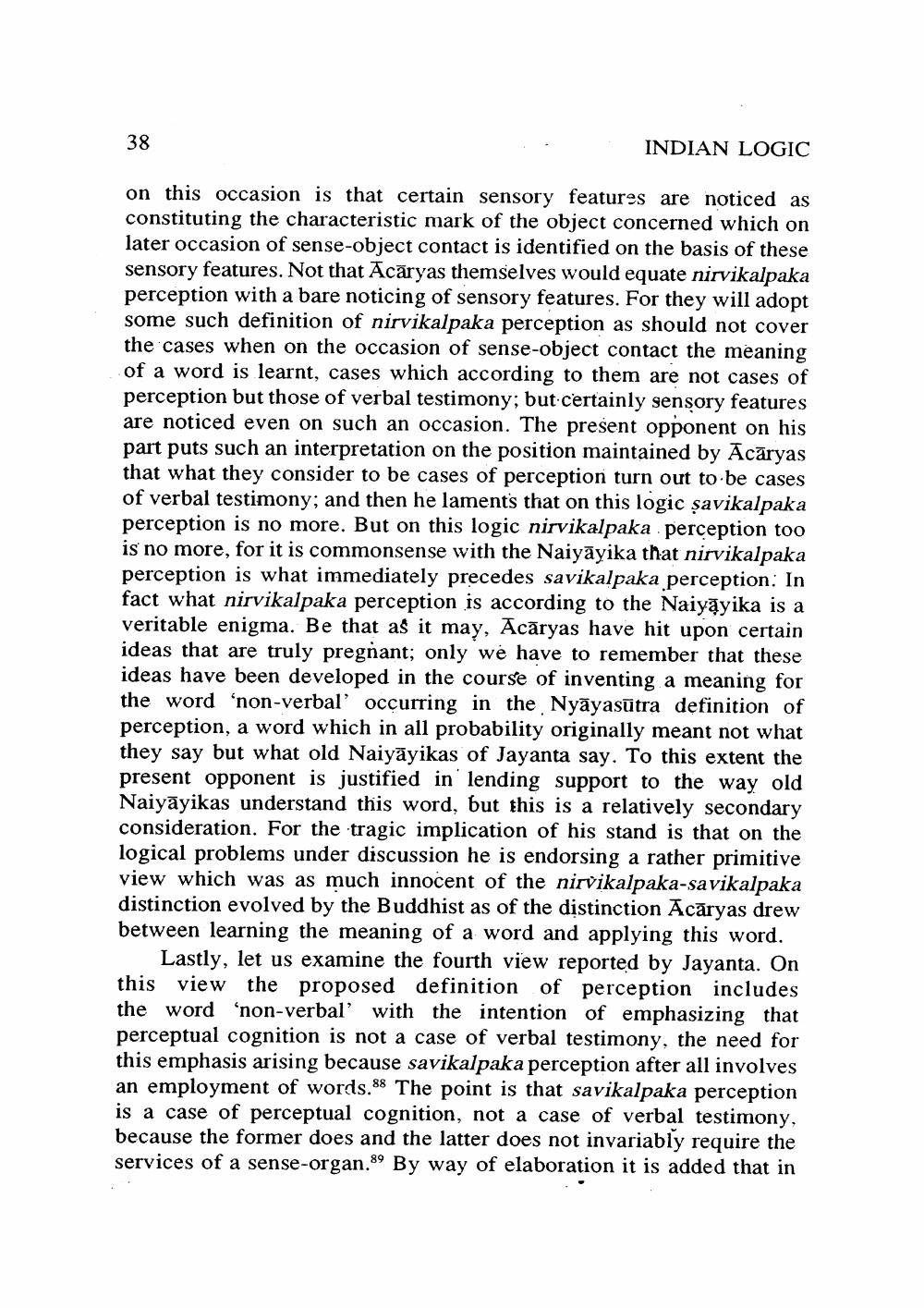________________
38
INDIAN LOGIC
on this occasion is that certain sensory features are noticed as constituting the characteristic mark of the object concerned which on later occasion of sense-object contact is identified on the basis of these sensory features. Not that Acāryas themselves would equate nirvikalpaka perception with a bare noticing of sensory features. For they will adopt some such definition of nirvikalpaka perception as should not cover the cases when on the occasion of sense-object contact the meaning of a word is learnt, cases which according to them are not cases of perception but those of verbal testimony; but certainly sensory features are noticed even on such an occasion. The present opponent on his part puts such an interpretation on the position maintained by Acāryas that what they consider to be cases of perception turn out to be cases of verbal testimony; and then he laments that on this logic şavikalpaka perception is no more. But on this logic nirvikalpaka perception too is no more, for it is commonsense with the Naiyāyika that nirvikalpaka perception is what immediately precedes savikalpaka perception: In fact what nirvikalpaka perception is according to the Naiyāyika is a veritable enigma. Be that as it may, Acāryas have hit upon certain ideas that are truly pregnant; only we have to remember that these ideas have been developed in the course of inventing a meaning for the word 'non-verbal' occurring in the Nyāyasūtra definition of perception, a word which in all probability originally meant not what they say but what old Naiyāyikas of Jayanta say. To this extent the present opponent is justified in lending support to the way old Naiyāyikas understand this word, but this is a relatively secondary consideration. For the tragic implication of his stand is that on the logical problems under discussion he is endorsing a rather primitive view which was as much innocent of the nirvikalpaka-savikalpaka distinction evolved by the Buddhist as of the distinction Acāryas drew between learning the meaning of a word and applying this word.
Lastly, let us examine the fourth view reported by Jayanta. On this view the proposed definition of perception includes the word 'non-verbal' with the intention of emphasizing that perceptual cognition is not a case of verbal testimony, the need for this emphasis arising because savikalpaka perception after all involves an employment of words. 88 The point is that savikalpaka perception is a case of perceptual cognition, not a case of verbal testimony, because the former does and the latter does not invariably require the services of a sense-organ.89 By way of elaboration it is added that in




